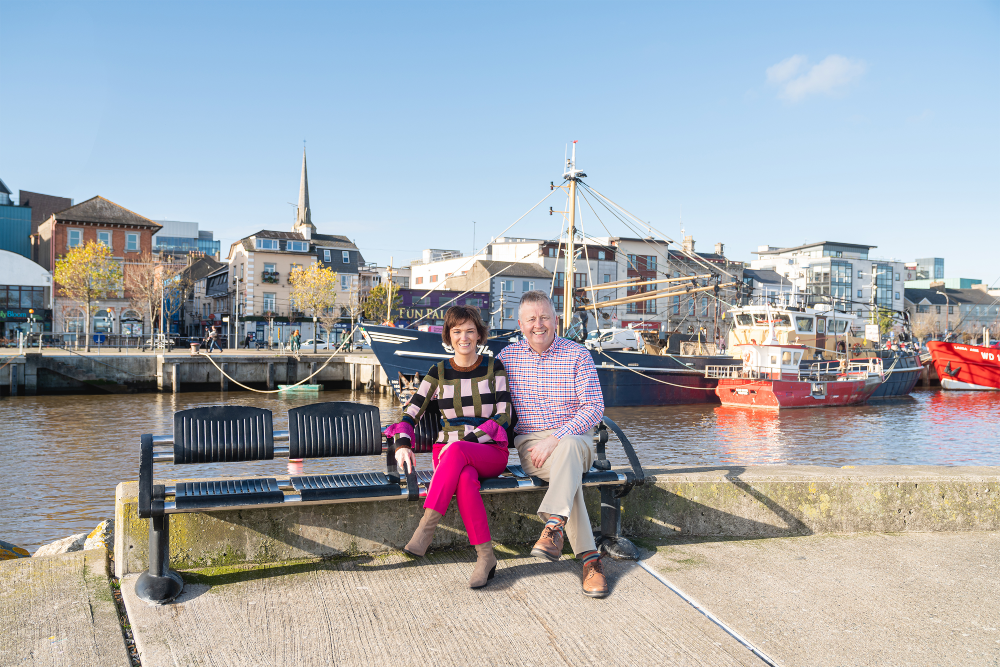The Irish motor sector is transforming and evolving to electric and hybrid vehicles, but there is still plenty of road left for diesel and petrol vehicles.
There is an expectation that sales of electric cars will continue to grow and could be as high as 10pc of the market next year with new models arriving all the time.
In his latest Motor Sector Newsletter, Healy revealed how 2020 was a challenging year for the motor sector due to the Covid-19 crisis with new car sales down 25pc. This has been compounded by an already declining market with sales down 20pc between 2016 and 2019 due to Brexit.
“Despite the year we’ve had, retail sales are actually up and used car demand is very strong”
Despite this motor dealers in Ireland proved their mettle by adapting to challenge by embracing online sales, click and collect and clever use of video technology to keep car sales alive during and between the various lockdowns. They also kept revenues flowing through serving vehicles.
Excluding the hire drive (car rental) channel which was down 85pc and which represents 15pc of the car sales market, new car and van sales were up 4pc since May.
Speaking with ThinkBusiness Healy said that used car demand remains strong as people buy cars to avoid public transport and because the money they were able to save during lockdown.
New car registrations actually rose 20pc year-on-year in November. December, Healy said, will prove to be a key month for new car order-taking.
“There are reasons to be optimistic in 2021. It’s been a tough year for the sector as new car sales declined 25pc this year, compounded by the decline of 20pc over four years because of Brexit.
“Despite the year we’ve had, retail sales are actually up and used car demand is very strong.”
Steering through Covid

Stephen Healy, head of Motoring Sector, Bank of Ireland
“There are 2.2m cars on the road and EVs represent around 13,000 of those. Change will take time and there is still a place for traditional fuels alongside alternative fuels”
The various Covid-19 restrictions no doubt took their toll on the sector but dealerships, Healy says adapted, and when they could reopen the large and airy nature of showrooms allowed dealerships to ensure safety.
But the biggest change that was either evolutionary or a consequence of the lockdowns has been the rise of internet ordering and click and collect purchasing. “While consumers still like to visit motor dealers and test the cars they are going to buy, sales teams can reduce customer time spent at the garage by sending videos of the car in advance. Equally consumers were able to do the same with their trade-ins. Finance applications can be managed remotely and consumers can get a same-day response in most cases.”
A bone of contention for the industry were the changes in VRT in Budget 2021 as a result of the introduction of WLTP (Worldwide Harmonised Light Vehicle) testing which replaces the older system but produces higher CO2 results.
Healy explained that the EU recommended that WLTP would be revenue neutral for customers, but that is not to be the case in Ireland. “It’s not that the car produces higher emissions, the opposite in fact because emissions have been falling around 20pc in the last 10 years. It’s the test that produces the higher results.”
As part of the EU Green Deal, stricter CO2 targets are coming over the next 10 years that will force manufacturers to produce greater number of low emission cars. Motor manufacturers will have to meet a new CO2 target of 95g/km per vehicle sold in 2021 versus circa 122.4g/km sold in 2019.
Currently Volkswagen holds the #1 position with 12.1pc market share, followed by Toyota with 11.4pc in #2, Hyundai with 9.2pc in #3, Skoda with 8.4pc in #4 and Ford with 7.7pc in #5.
Sparking the age of electric vehicles
The biggest changes about to sweep the car market in Ireland will be driven by electricity and according to Healy there is an expectation in the industry that sales of electric vehicles could more than double from 4.5pc in 2020 to 10pc in 2021. Motor dealers such as Kearys Motor Group have also recently predicted the doubling of sales of EVs in 2021.
Healy pointed out that Ireland has very ambitious goals to put 840,000 EVs on the road by 2030 but warned that this could be unrealistic. “This would require around 60pc of all new cars to be EVs per annum between then and now.”
If Ireland is serious about reaching this target Healy said that more will need to be done to accelerate change, despite already having more generous supports compared to the EU average.
“Ireland at 4.3pc compares favourably to the EU at 4.1pc on average between the first and third quarters of 2020. However, to seriously influence change more will need to be done to lower prices. The Government could eliminate VRT and lower VAT to strongly encourage the switch to electric, for example.”
A more realistic outcome is that the shift to electric will be a gradual one. “It is more likely that consumers in urban areas will adopt EVs sooner than rural areas.”
Healy pointed out that even if EV sales double to almost 10pc of the market next year, 90pc of people will still buy diesel and hybrid cars.
“In fact, Ireland has a higher demand for diesel cars at around 43pc of annual sales in 2020 compared with 29pc in the EU and less than 20pc in the UK due to the geo-demographics that exist.
Ultimately Healy predicts that there will be a blended mix of petrol, diesels, hybrid and EVs sold alongside one another.
“There are 2.2m cars on the road and EVs represent around 13,000 of those. Change will take time and there is still a place for traditional fuels alongside alternative fuels.
Ireland needs to invest more in infrastructure and the ESB is currently investing €20m in a revamp of charging stations around Ireland,” Healy concluded.
By John Kennedy (john.kennedy3@boi.com)
Published: 21 December 2020






